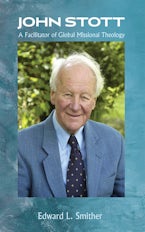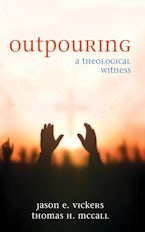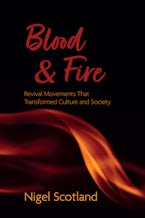God Doesn’t Live Here Anymore
Decline and Resilience in the Canadian Church
Foreword by Joel Thiessen
Imprint: Cascade Books
The church in Canada is in trouble. Media reports suggest that nine thousand churches are likely to close over the next ten years. The United Church of Canada reports closing a congregation a week. The Anglican Church of Canada anticipates closing its last congregation by 2040, and the Roman Catholic Church, Canada's largest religious denomination, reports having closed one-fifth of the tradition's 2,500 congregations.
God Doesn't Live Here Anymore traces the story of the church in Canada from its far off historical roots in biblical times, rise to dominance in medieval Europe, role in the colonization of Canada, strained relations with Canada's First Nations, twentieth-century prominence, and the church's dramatic decline and loss of influence entering the twenty-first century.
Wood Daly pulls no punches in calling the church to accept responsibility for its own decline, while maintaining hope that resurrection is still possible. The church, as Canadians may know it, might disappear, but for Christians death has never been the end of the story.
Michael Wood Daly is president of Sphaera Research, an associate at the Trinity Centres Foundation and currently serves as research director for the Halo Canada Project.
“Despite the ominous title, Michael Wood Daly offers hope—that rather than leaving Canada, God is living in different places and people than a century ago. Amidst the loss of church buildings and other places of worship because dwindling faith communities are no longer able to support them, this book may be ushering in a new, more diverse movement across Canada of dynamic spiritual life for the twenty-first century.”
—Brian Grim, President, Religious Freedom & Business Foundation
“In this innovative and timely book, Wood Daly correctly observes that for many, the church as we know it has simply lost its relevance. . . . Historically, institutional religion faced many crises and managed to rebound. Our generationally needed rebound is yet unclear. While the focus is on Canada, every student of religion in all Western countries should be assigned this book.”
—Ram A. Cnaan, University of Pennsylvania
“Brave, credible, necessary, and urgent. Every congregation, adjudicatory, municipality, activist, or fund looking at the future of Canada’s places of faith must read this carefully. Wood Daly’s skill, experience, and love for the Canadian church all combine for this essential diagnosis and prescription.”
—Graham Singh, CEO, Trinity Centres Foundation
“Michael Wood Daly weaves together his personal experience of church life and mission in Canada with an integrated and engaging discussion of Canadian church history and the latest research on the health and life of the church. In addition, he makes an important contribution by critically engaging the dark history of the mission of Christian churches in Canada in relation to indigenous people on Turtle Island.”
—Charles Fensham, Knox College
“A stimulating, richly documented, and well-written contribution to an understanding of the origins of the Christian church and its rise and fall in Europe and Canada. Wood Daly sees the current situation as a place from which resurrection is possible—a place from which the church in Canada can start again and God can live again. This provocative book warrants a wide reading and a significant response.”
—Reginald W. Bibby, University of Lethbridge
“Wood Daly offers realistic, courageous insight into the decline and transformation of the church in Canada without descending into pessimism or despair. The historical account he offers is especially rich. Above all, this book’s hopefulness about the goodness of God and the enduring importance of God’s purposes, beyond the emptying buildings and the dying forms of Christianity, challenges the complacency of today’s churches and inspires a new future.”
—Rob Fennell, Atlantic School of Theology
“There are few researchers like Michael Wood Daly with their finger on both the pulse and the survey data of Canadian church life. For both the sober reality and a thoughtful contemporary examination of the way ahead for people of faith, this is the book to read.”
—Peter Noteboom, General Secretary, The Canadian Council of Churches











